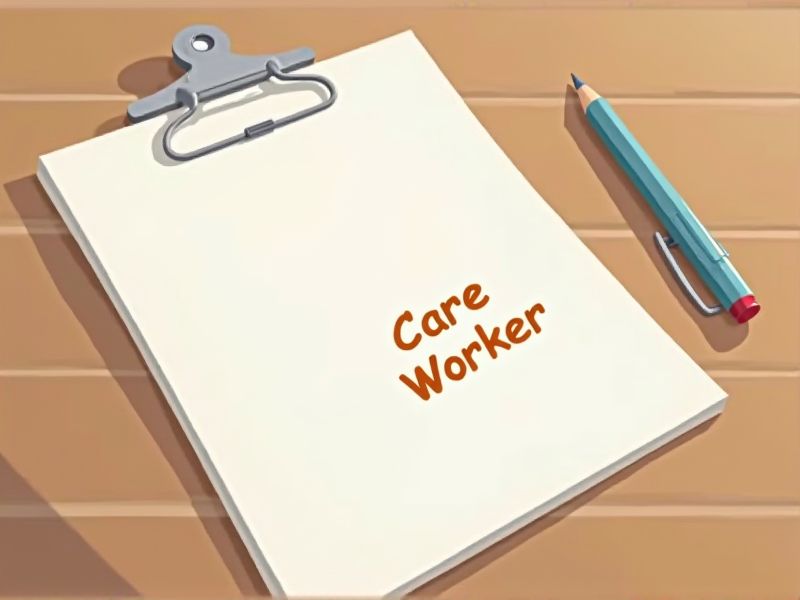
Foster care workers encounter complex family dynamics and psychological challenges, which demand a firm understanding of child welfare principles. Certifications provide the foundational knowledge and skills necessary to handle sensitive cases effectively. Regulatory requirements often mandate specific credentials to ensure that workers operate within legal and ethical frameworks. Several certifications are crucial for a foster care worker to succeed in this demanding field.
Child Welfare Certification
Child Welfare Certification ensures foster care workers possess the essential training and knowledge, enabling them to address the diverse needs of children in the system effectively. This certification standardizes the competencies of workers, promoting consistent and quality care across different agencies and regions. Having certified workers can lead to better outcomes for children, including improved placement stability and healthier developmental progress. Attracting and retaining skilled professionals becomes more feasible when certification enhances professional credibility and career advancement opportunities.
Foster Care Licensing Certification
Foster Care Licensing Certification establishes a standardized protocol ensuring foster care workers meet crucial safety and competency requirements. Meeting these standards helps create a consistent, stable environment for children, which can mitigate potential placement disruptions. Certification also holds workers accountable, ensuring adherence to best practices and legal mandates, which protects vulnerable children. Licensed professionals are more equipped to support foster families effectively, enhancing overall child welfare outcomes.
Mandatory Reporter Training Certification
Foster care workers encounter situations where children's safety is at risk, and mandatory reporter training ensures they can identify signs of abuse or neglect. This certification equips them with the skills to follow legal protocols, preventing harm and ensuring timely intervention. Mandatory training promotes a standardized understanding of how to report suspicions accurately and effectively, which enhances child protection efforts. The legal obligation to report makes the training crucial to meet regulatory requirements and maintain safeguarding standards.
Child Abuse Recognition and Reporting Certification
Child abuse recognition and reporting certification equips foster care workers with essential skills to identify signs of abuse, ensuring child safety. Accurate reporting by these workers can prompt timely interventions, potentially preventing further harm to vulnerable children. Certification provides foster care workers with a standardized understanding of abuse criteria, fostering consistency in how cases are handled. Informed workers can build trust with children, encouraging open communication and facilitating intervention when necessary.
Trauma-Informed Care Certification
Trauma-Informed Care Certification equips foster care workers with skills to recognize and respond to signs of trauma, improving outcomes for children in the system. Knowledge of trauma-informed practices decreases the likelihood of retraumatization, helping foster youth feel safer and more supported. With this certification, workers can tailor interventions to individual needs, fostering healthier development and resilience in children. Proper training in trauma-informed care enhances collaboration with other professionals, ensuring a more comprehensive support network for foster youth.
Crisis Intervention Certification
Foster care workers frequently encounter high-stress situations involving children and families facing trauma, making comprehensive crisis intervention skills essential. Certification equips them with strategies to de-escalate tense scenarios, promoting safety for all parties involved. With proper training, workers are better prepared to manage emotional and behavioral crises, improving their ability to support foster children effectively. Specialization in crisis intervention directly contributes to more stable and nurturing foster care environments, aiding in the overall well-being of the children.
First Aid and CPR Certification
Foster care workers often face emergency situations, where First Aid and CPR skills enable them to respond promptly and effectively, mitigating potential harm to a child. Many foster children have experienced trauma or have underlying health conditions, making immediate medical attention crucial. Regulatory agencies require foster care workers to be certified to ensure they are equipped to handle a variety of health contingencies. Certification provides workers with the confidence and knowledge to manage critical incidents, ensuring the safety and well-being of those in their care.
Behavioral Management Certification
Behavioral management certification equips foster care workers with essential skills to address and modify challenging behaviors in children. This training ensures that workers can implement strategies that promote a stable and nurturing environment. With such certification, they can better understand trauma-informed care, vital for supporting children who have faced adverse experiences. Effective management techniques help reduce disruptions, leading to more successful placements and long-term outcomes for children in foster care.
Conflict Resolution and Mediation Certification
Foster care workers often encounter complex family dynamics, which can lead to conflicts requiring specialized resolution skills. Certification in conflict resolution and mediation equips these workers with techniques to manage disputes effectively, promoting a more harmonious environment for children. The training enhances their ability to facilitate communication between parties, enabling better outcomes for foster placements. By possessing these skills, foster care workers contribute to a more stable and supportive system, fostering healthier child development.
Cultural Competency in Social Work Certification
Cultural competency in social work certification equips foster care workers with the skills to effectively navigate diverse cultural backgrounds, which enhances trust and communication with families. This understanding directly reduces cultural misunderstandings and helps in creating tailored intervention strategies. Foster care workers with cultural competency are better prepared to support the emotional and social needs of children from various ethnic backgrounds. Certification ensures that workers adhere to ethical standards that honor diversity and respect, which improve overall care outcomes.
Summary
When you, as a reader, gain certifications as a Foster Care Worker, your credibility and expertise in the field will likely increase. This enhancement in qualifications can lead to improved job performance, as certifications often provide advanced skills and updated knowledge. The recognized credentials may facilitate career advancement opportunities, potentially resulting in higher job positions or salary increments. Your ability to impact and advocate for foster children could be significantly strengthened, contributing to better outcomes for the children in your care.
